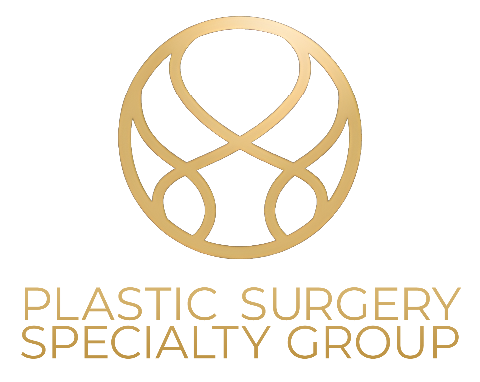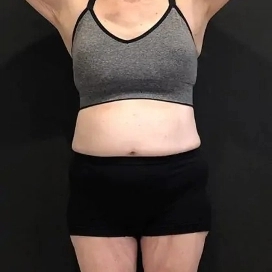Are you having a good hair day?
I’m not; humidity has wrecked havoc on my hairstyle.
I can vividly remember the last time I had a really good hair day though – one of those times you feel like you stepped out of a commercial with impressively shiny, bouncy locks, and the compliments from strangers and friends seem endless (Thank you this is my natural color! Yes, I am lucky to have such thick hair! Many people often do get me confused with Taylor Swift from the back of my head!).
Most of us accept that looks matter. We know that our appearance impacts our personal, social and professional lives. We also know that how we feel influences how we look and vice versa.
Although we’d like to believe “what is inside counts most,” scientific evidence, as well as common sense, tells us that an appealing appearance, good health and hygiene positively impact our lives.
Changing and maintaining a hairstyle is easy – regular haircuts to eliminate split ends, a visit to one of those popular blow out salons for a quick reinvigoration, or even just one of those days when the universe is on your side and you wake up with Gisele-esq waves.
What about those who want to surgically alter their physical appearance with the intent of boosting their social and psychological well-being though?
Many prospective patients, with realistic expectations, believe undergoing plastic surgery will increase their overall quality of life.
There is, in fact, a relationship between happiness and cosmetic surgery.
Researchers from two European Universities released a study that looked at the positive long-term effects of plastic surgery.
Specifically, the study conducted by Margraf, Meyer and Lavallee focused on the question: Do cosmetic interventions (plastic surgery) increase the quality of life of those who undergo procedures?
The researchers looked at various common facial plastic surgery procedures including rhinoplasty, eyelid surgery, and facelifts. They monitored a group of first-time plastic surgery patients (around 550) at regular intervals after their surgery, and found they had higher self-confidence overall.
This group was compared with two others: those that had previously wanted plastic surgery and then decided against it for whatever reason, and those that had never had and still did not feel any desire for cosmetic procedures.
The patients were psychologically tested before surgery, as well as three, six, and 12 months afterwards.
Compared to those who had chosen not to have plastic surgery, the patients who opted for surgery “felt healthier, were less anxious, had developed more self-esteem and found the operated body feature in particular, but also their body as a whole, more attractive,” the researchers wrote. “No adverse effects were observed.”
It was a look good, feel good moment for those individuals. Other research finds similar results.
In 2008, Dr. Neil S. Sadick of Cornell University completed a study on the effects of surgical cosmetic interventions.
Some highlights of his work include:
- In a study of 110 patients who underwent breast lift surgery, 95% of those patients experienced an improvement in physical and psychological health and their well-being greatly improved after the surgery.
- In a study of 105 patients who underwent various elective cosmetic surgeries, many reported huge improvements to their overall life six months after their surgery. These improvements include positive changes to patients’ sex life, social life, and relationships.
- A separate study found the vast majority of facial cosmetic surgery patients reported improvements in general health, satisfaction with their appearance, independence, and a drop in anxiety.
Those kinds of results aren’t limited to case studies, though. Often we can see changes in our friends and family who have gotten plastic surgery.
I’ve seen friends of mine change from meek and dissatisfied with their lives to confident and vivacious after getting work done. The instance that sticks out in my mind is when my friend Sarah had breast augmentation surgery. She had a noticeable size difference between each cup that bothered her relentlessly.
Her close friends knew her as funny (throwing witty remarks and movie quotes around), an expert on cooking techniques, and as someone who would prattle on about mystery books for hours.
When we went out though she was timid and hung back in the group. She would wear frumpy, oversized shirts to hide her disproportional chest and never wanted to start a conversation first. Mostly she said she felt awkward and preoccupied with keeping anyone from noticing her.
She had been contemplating surgery for two years when she finally decided to go through with it to get rid of her biggest insecurity.
The change in her self-esteem was astonishing. The fun girl we all loved as our friend was finally on display in public too. She finally allowed herself to stand out in the crowd.
For those with low self-esteem, those negative personal feelings can affect more than just your personal life – they can also affect your career.

Experts say that people with low self-esteem engage in subconscious behaviors that undermine their success, making them less likely to ask for or get promotions, raises and even jobs.
Positive traits are masked, negative assumptions are made, and those individuals tend to shrink back from any spotlight and stay under the radar.
For those that are considering plastic surgery, the procedure could make a huge difference in your career.
The post-surgery happiness might finally get you noticed for that promotion you deserve.
One thing to remember, however, is that plastic surgery boosts happiness and self-esteem for those with reasonable expectations.
Realistic expectations means being able to assess your motivations, then understand and assess the range of possibility, and finally adjust your goals to balance those factors.
Unrealistic expectations include expecting cosmetic surgery to completely change your life, to make you look like a certain celebrity, or to obtain “perfectionism”.
Remember to ask yourself:
- “Why do I want cosmetic surgery?”
- “What procedure do I want?”
- “How long have I wanted it?”
- “What kind of change do I think/expect it will make in my life?”
Once you have that list of why, what, and how mentioned above, then it is time to consider a consultation with a surgeon.
In the San Francisco area or Marin County? Interested in cosmetic surgery? Request a consultation and find out more.
Communication is the key to getting exactly what you want from a cosmetic procedure. If you have done your work, and can be up front and honest about what you want and why you want it, your surgeon can give you the information you need in order to continue the decision making process.
This is how you can develop a realistic goal and discover how to achieve it with your cosmetic surgeon.
Conclusion
For some, having a good hair day might be enough of a confidence boost, but for many others a bigger change is needed.
Plastic surgery is a personal and serious choice, but if you think it will increase the quality of your life then it could be the right choice for you.
What do you think about the relationship between cosmetic surgery and happiness? Do you or someone you know have an experience where self-confidence was raised after plastic surgery? Comment below.












